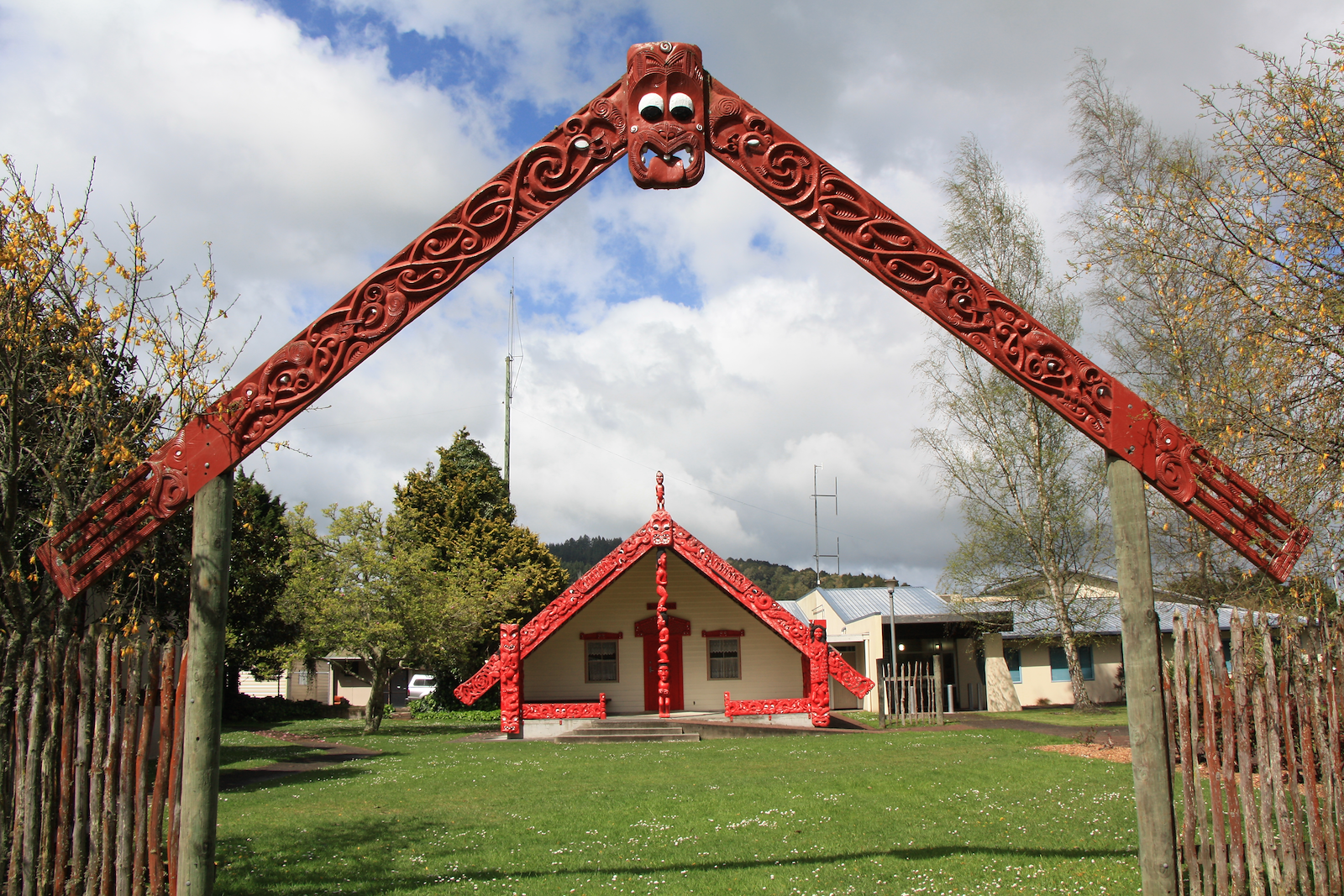Marae are a key feature of Māori society. The marae is a place where the Māori language can be spoken, where customs can be explored and debated, and where important ceremonies, such as welcoming visitors, meeting inter-tribal obligations, or farewelling the dead can be performed. The marae is a wāhi tapu, a 'sacred place' which carries great cultural meaning.
Last updated: Rāpare, 31 Hereturikōkā, 2023 | Thursday, 31 August 2023
What's on this page?

Morero Marae, Taumarunui
In Te Reo Māori, the marae atea is the open space in front of the wharenui (meeting house) which was traditionally part of a Pā (village). In modern usage the phrase is often shortened to marae, and has come to include all the land and buildings associated with the marae atea. Today marae are storehouses of history, mātauranga (knowledge) and taonga (treasures). Many marae are also venues for the provision of health, education, justice and social services.
In legal terms, a marae is a meeting place registered as a reserve under the Te Ture Whenua Māori Act 1993 ('The Māori Land Act'). Each marae has a group of trustees who are responsible for the operations of the marae. The Act governs the regulation of marae as reservations and sets out the responsibilities of the trustees in relation to the beneficiaries.
The Māori Land Court has published a guide to Māori reservations under Te Ture Whenua Māori on its website:
Traditional marae are normally owned by whānau, hapū and occasionally iwi. This means that marae are centres for whānau who connect with each other through whakapapa (genealogy). Since the mid nineteenth century, a number of urban marae have been established to serve the same purposes as traditional marae for Māori people living in urban settings. Many educational institutions have also established marae to provide a setting for their students, staff and communities. These non-traditional marae are based on kaupapa (theme) rather than whakapapa.
Oranga Marae
Oranga Marae is a programme of support, advice and investment for marae. It gives whanau and hapū advice and support to help develop their marae and achieve their goals. This support may include building projects and activities to restore cultural knowledge.
Oranga Marae is provided by Te Puni Kōkiri and the Department of Internal Affairs. Click here to visit the Oranga Marae webpage.
Extra support for marae
Te Puni Kōkiri provides facilitation and brokerage support for marae to access resources available from private and public sector agencies and groups. To access this support, please contact your local Te Puni Kōkiri office.
Online information and resources that marae may find useful have been grouped together under three key areas:
Cultural Infrastructure and Capability looks at marae communities, marae heritage, mātauranga Māori and marae usage.
Physical Infrastructure and Capacity which details physical access to the marae, buildings on the marae, utilities and capacity of the marae.
Administrative Infrastructure and Capability which covers legal structures, trustee roles and responsibilities, financial management, insurance, project planning, workforce and external relationships.
Research
Te Puni Kōkiri has conducted a range of research activities to inform and assist marae to be self-determining and sustainable into the future. These activities included assessments into the health of marae (1997 and 2009), as a way to collate information on the success factors and barriers to marae development that could inform policy development.
Early in 2012, Te Puni Kōkiri released a report: Te Ora o Te Marae 2009 - The Status of Marae in 2009 based on information collected from marae throughout Aotearoa.
Click here for more publications about marae.
Further information and details of specific marae
Te Kahui Mangai
Te Kāhui Māngai gives information on iwi identified in the Māori Fisheries Act 2004, and those iwi/hapū that have begun the process of negotiating settlement of their historical Treaty of Waitangi claims. This includes their rohe, hapū, marae, and other representative organisations.
Māori Maps
This site contains information for the principal ancestral marae across Aotearoa, numbering almost 750 marae.